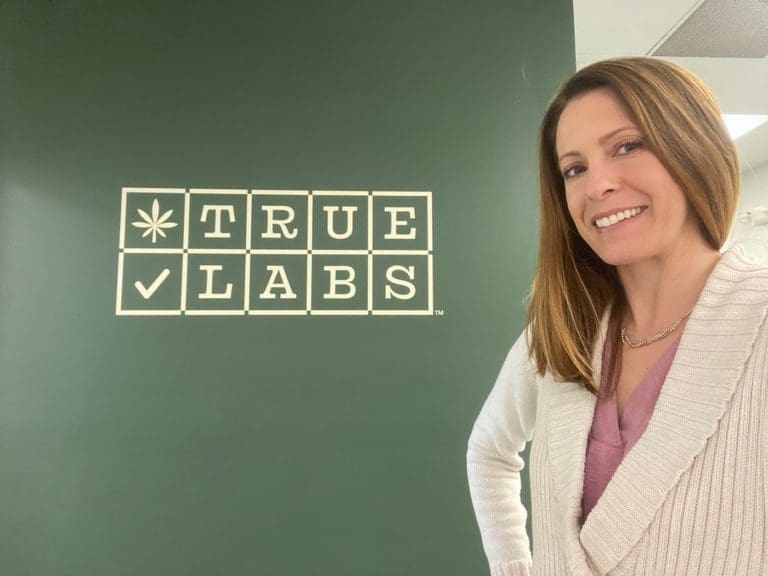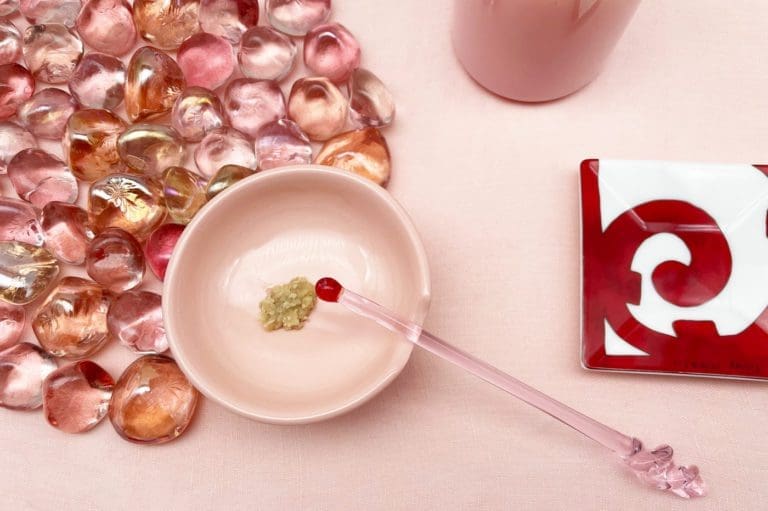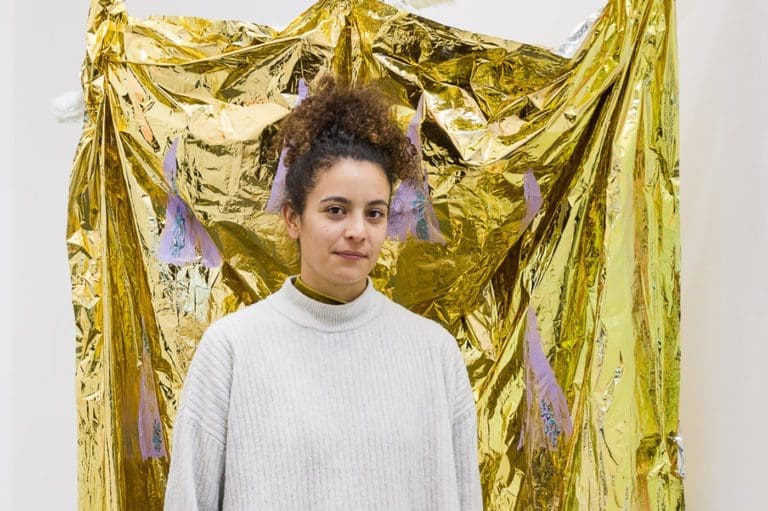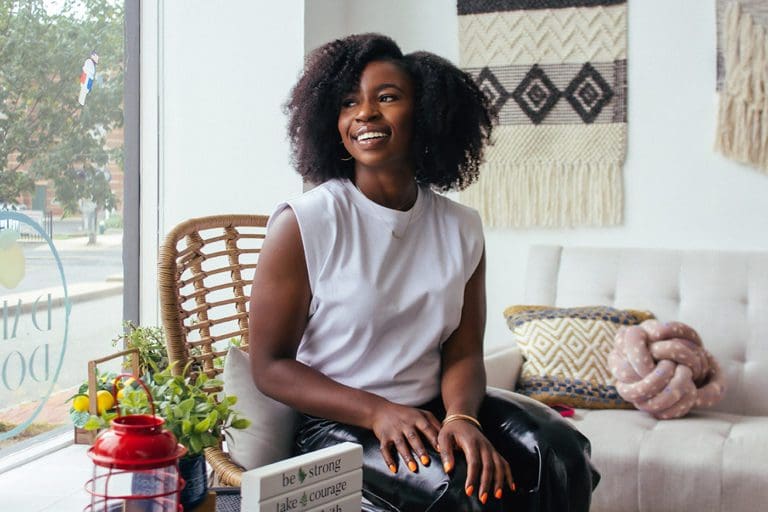5 Latina Leaders Disrupting the Cannabis Space
At House of Puff, we celebrate Latinx and all identities every day. But for Hispanic Heritage Month, September 15 through October 15, we’re highlighting Hispanic positive influences and game changers. From growing and distribution to cannabis law, education, and events, these 5 Latina leaders are reshaping the industry. Leveraging their hispanic heritage of grit and a formidable work ethic, they’re finding creative paths to the top of their fields and breaking historical cannabis stigmas.

Margarita Juliana Connors
CEO of Besito | Los Angeles
My mom was born in Cuba and fled to the US when Castro took over. She grew up in Southern Florida where I’ve visited la familia every year since I was a kid. I come from a long lineage of women named “Margarita” and have always felt a strong connection to my Cuban culture, even though it was through photos and stories of the past. When President Obama opened it up a few years ago, my mom returned for the first time since she left, and my whole family came with her for our first visit. The trip was an extremely emotional exploration of our heritage, the places our ancestors lived, and everything and everyone they lost. It ended up particularly spiritual because I met my now partner at the same place my grandfather proposed to my grandmother in Havana. How special is that?
How has your Hispanic heritage primed you for success?
Passion for this plant drove me into the industry 4 years ago, following my great grandfather’s entrepreneurial spirit in Havana. My grit is instilled from their hard work, and that’s what’s kept me in the industry. Scrappiness ensures I’m resourceful and confident in how much I can stretch and do on my own. Cuban culture is also filled with arts, music, dancing, poetry, etc. The infusion of the arts into everyone’s life is a beautiful guidepost for me. Having creative outlets and a close-knit community is integral to my success.
Is there a specific career triumph you can trace directly to your Latinx upbringing?
Well, not quite a triumph, but my heritage definitely inspired the company name! I kept thinking about the connection between weed and pleasure and how the effects can be like that of a little kiss. I was also inspired by all the Latinx culture in Los Angeles, which really affected the brand we developed. Tropical colors, plant-forward, inclusive, relaxed—these are aspects of my culture that reflected my experience with cannabis and therefore inspired the brand aesthetic and product design.
How would you like to see the cannabis industry support Latinx communities?
The reality is that racism drove cannabis prohibition and criminalization, and the industry was built on the backs of Black and Brown folks. I believe it’s on the entire legal cannabis industry to help repair the harms caused by the War on Drugs and build an equitable industry beyond relying only on regulations. Unfortunately, we’re a long way from where I’d like to see the industry. The capital requirements, regulations, and politics are huge barriers that make it extremely difficult to achieve success and ownership in the industry. I hope to see more Latinx and POC folks working at all levels shaping the space and all companies reinvesting into their communities.
Favorite food from your culture?
Mmmm arroz y frijoles! Platanitos! Cubans keep it simple, but why wouldn’t you when rice and black beans are such a good pairing? And I love plantains–sweet maduros or salty tostones—I’ll have them all, please, and thank you. Oh, and strong coffee runs through my veins.
Imelda Oropez Walavalkar
Pure Beauty | Los Angeles
I’m mixed: my mom is Mexican from Texas (so technically Tejanx/Chicanx), and my dad is South Asian. And yes, I think these are the 2 best food cultures in existence.
How has your Hispanic heritage primed you for success?
Growing up Brown/Mexican/Asian in conservative, predominantly white schools and neighborhoods, I felt very marginalized because of my skin and culture(s). Particularly given that there was such strong anti-Mexican sentiment in my community. But now I’m so grateful for having this life experience because I truly believe that adversity makes you a stronger, more interesting person—forces you to understand different perspectives, empathize, and be more connected to our universal humanity. I think these are extremely important qualities to have in business, particularly a company that is, ultimately, all about connection and understanding the world in new ways. Also, I have a wider range of inspiration to draw from aside from what’s mainstream—Mexican/Chicanx culture is very rich, from music to food to even just how we exist in the broader context of America (which is intrinsically political). And this very much informs everything we do with Pure Beauty. In a lot of ways we’re a very Mexican/Chicanx brand—American, but through the lens of a Brown person, lol.

Is there a specific career triumph you can trace directly to your Latinx upbringing?
I made and sold tamales in an NYC park and donated all proceeds to Obama’s first campaign for president. I made hundreds of tamales myself, including the masa, and sold out in a couple of hours. Shortly after that, I started my catering business. Food and cooking are in our DNA!
Role models?
Not to be cliche but AOC. Also, can a role model be younger than you?
How would you like to see the cannabis industry support Latinx communities?
When you look at the mastheads of the biggest cannabis companies, it’s rare to see any Latinx people. We, as an industry, need to make more tangible efforts to support Latinx businesses as well as Latinx people in leadership positions. The fact that it’s so expensive to not just enter the legal cannabis market but exist as a cannabis business makes it even harder for us; this is compounded by our disproportionately low access to capital—less than 2% of venture capital funding goes to Latinx entrepreneurs (the number is even lower for Latinx women). Like all systemic issues, we need a more thoughtful policy to make real, substantial change. We can’t just depend on businesses that have no real incentive to care or do anything aside from posting their support on Instagram and donating here and there. Collectively, as an industry, though—and particularly those businesses that have more resources and influence—we have the capacity to affect policy and broader level change and that’s something we should all be focused on.
Favorite food from your culture
Beans (pinto #1 and black #2). I had beans almost every day growing up, and they’re the only food I never get sick of. They’re healthy, filling, and delicious. Since I’m also Indian, I have to also give all curries a shout out!!
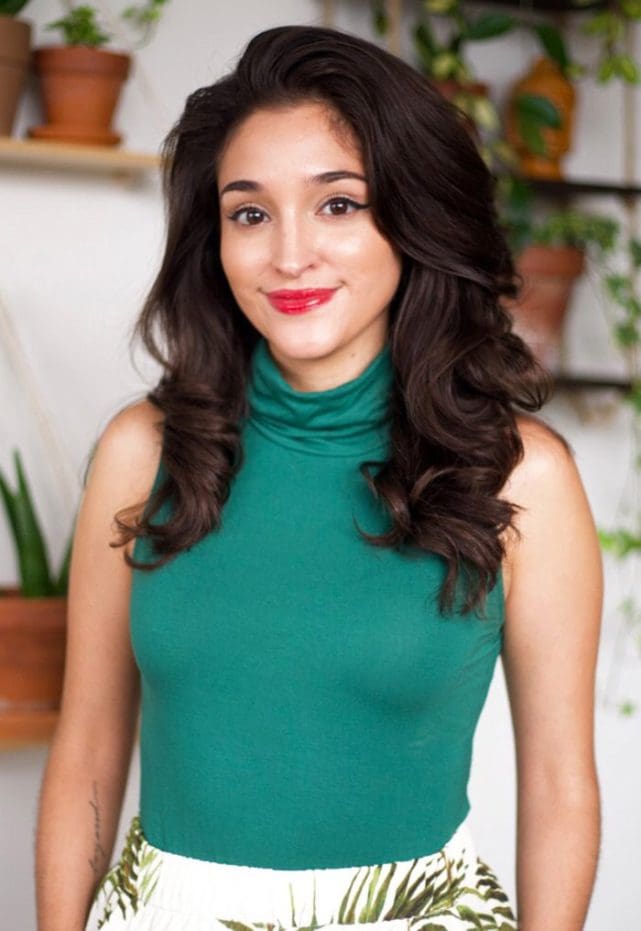
Jessica F. Gonzalez Esq.
Cannabis & IP Attorney | New York
I was born in Quito, Ecuador, where my family has lived for generations in the Andes Mountains. My family is pretty big on both sides, totaling 13 aunts and uncles, most of whom live in Ecuador. I immigrated to the U.S. in 1994 when I was three years old and was raised in Jersey City, NJ.
How has your Hispanic heritage primed you for success?
Being raised in an immigrant household, my mom constantly reiterated the importance of a good education and a strong work ethic. “Estudia, estudia, estudia,” she would tell me. She knew that coming to this country meant we had to work harder, smarter, and rid ourselves of any excuses that would limit our potential. She taught me to rely on myself and instilled in me that while material things can be taken away, no one could ever take away my education. I watched my mom and aunts clean houses to push their families forward, and it was that specific work ethic that became a blueprint for my own work ethic. Nothing compares to the Hispanic work ethic.
Is there a specific career triumph you can trace directly to your Latinx upbringing?
Opening up my own law firm with another Latina partner resulted from being unable to find a firm where I fit in. Though I no longer run my own firm, it was one of the greatest career moves I could have made for myself. Latina attorneys currently make up only 1.7% of all attorneys in the U.S. Both the legal and cannabis industry are made up of predominantly white men. I had to do something drastically different to be taken seriously because I don’t walk into a room with the same presumption of competence as a white man. As the first of my family to attend a private university and attend law school in the US, I learned how to inspect the crevices of all opportunities because there was no one to guide me. Going into the unfamiliar became familiar to me. Going out on my own at 27 years old to focus on cannabis in a state that had yet to legalize, was different and it’s that difference on my resume that made me stand out. Play smarter, not harder, my mom always said.
Role models?
In terms of life role models, without a doubt, it’s my mom who fearlessly created the life she wanted with a relentless work ethic. In terms of my career in cannabis, I look to Shaleen Title as a role model. When I first began in cannabis, I didn’t see female attorneys of color represented, that is, until I heard Shaleen speak. Shaleen inspired me to take a stance in cannabis instead of hiding behind my corporate career. She showed me the type of impact I could create with a legal degree and she inspired me, a very young lawyer to continue to work in cannabis not for myself, but for my community. Through her work, she encouraged me to pursue causes beyond my day job, to be more than a lawyer, but an activist and advocate for voices that don’t have the opportunity to be present at the table.
How would you like to see the cannabis industry support Latinx communities?
I would like to see more Latino-centric cannabis events such as the one the Minority Cannabis Business Association is hosting in December. Given the lack of data from the FBI on cannabis arrests for the Latino population, Latinos tend to be left out of the conversation. But our communities are also targeted under the purview of fighting the “war on drugs.” We need more information, more data, more statistics about our communities because it seems that without such data, the harms our communities face are erased.
Favorite food from your culture?
Humitas! Traditional Ecuadorian delicacy that consists of masa harina and corn, wrapped in a corn husk, and slowly steamed or boiled in a pot of water. I’m learning to make them with my Tia.
Adelia Carrillo
CMO of EventHi | San Diego
When I was younger, I was lucky to spend quite a few years appreciating my Mexican heritage. I listened and danced to mariachi music and corridos with my abuelita. I always enjoyed spending my time watching her make home-cooked traditional Mexican food. My favorite was helping her make tortillas from scratch. I enjoyed how almost every day was a day where all of our family members were together. I’ll always cherish those memories. Although I moved to San Diego, I held onto those traditions and hope to incorporate them into my life as I begin to grow my own family.
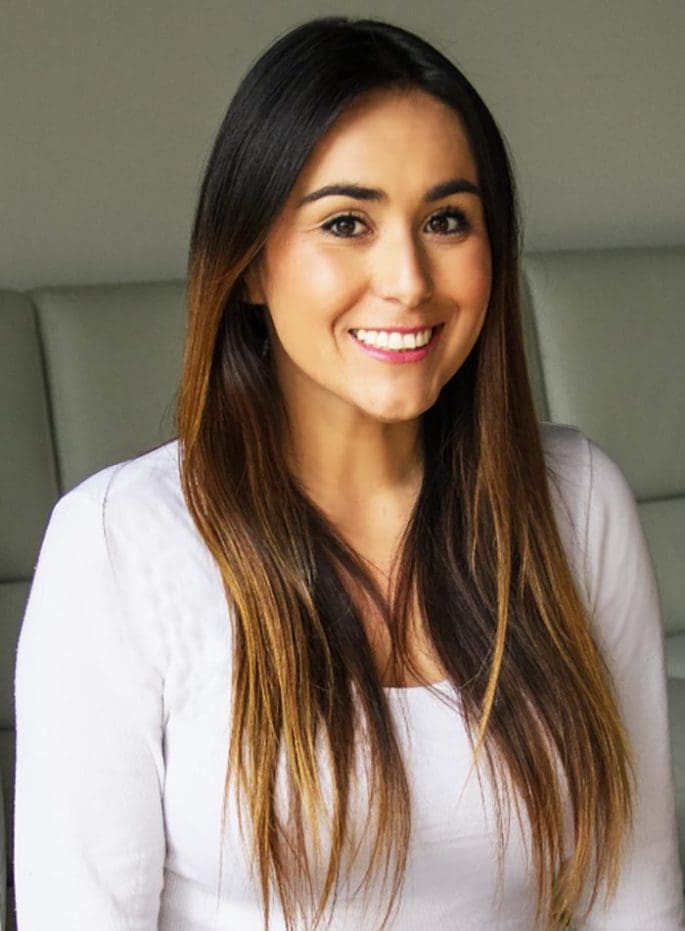
How has your Hispanic heritage primed you for success?
Each of my family members, especially the women in my family, are strong, opinionated, hardworking, and passionate. I never noticed it before, but I truly have the Aragon bloodline. My hard work and passion and the ability to speak my voice has begun to show as I continue to find my voice and path in life. It allowed me to grow and learn when I was working in the corporate world, and even now as an entrepreneur.
Is there a specific career triumph you can trace directly to your Latinx upbringing?
I don’t think I’d be where I am today if it weren’t for my upbringing and family. I never envisioned myself as an entrepreneur, but looking back, I see that it was always in me, to follow our passion, work hard, and follow what my heart and mind are pulling me towards. Did I think it would connect me to cannabis? Never. But now I see that my path is to help move this plant forward, to help the community, and do my best to make sure we don’t lose the heart behind it all.
Role models?
My mother was a young teenager when she had me, and even though young, she always made sure that I had everything I needed and was well taken care of. On top of that, she continued to move forward with her education and worked hard pushing herself towards a career path that led her to a fulfilling career working for the District Attorney’s Office in San Diego. She taught me to work hard, never to give up, to stand up for what I believe in, and to follow my heart. I would not be here today if it wasn’t for my mother. She pushed me when I didn’t believe in myself.
How would you like to see the cannabis industry support Latinx communities?
I’d like to see more Latinx being offered more opportunities to represent the industry, and I don’t mean just adding another Latinx panel to a conference. I want to see Latinx speaking in all kinds of settings geared towards their skill sets and the industry sectors they’re catering to. I also want to see more events and education in Spanish so we can help educate our community. Our families have seen and experienced the War on Drugs and how it has affected our communities. It’s time to show how this plant can help us, help our planet, and offer opportunity and change.
Favorite food from your culture
Mmm, I have way too many…but, if I had to choose, I would say pozole, tamales, menudo, and conchas.
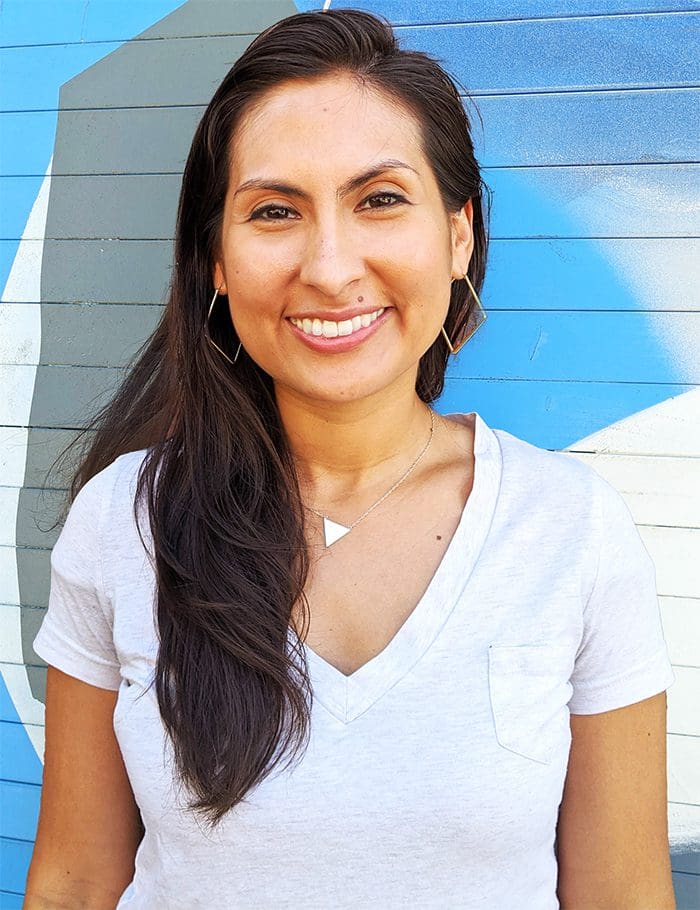
Cynthia Villamizar
Cyntivee + Bay Area Latinos in Cannabis | San Francisco
I’m the daughter of an Ecuadorian mother and Colombian father. They met salsa dancing in Miami, and I like to say that that’s the only thing you really need to know about my family and me. I grew up in Miami, a largely Latino community, but my family moved to Tennessee when I was 12. The culture shock was intense. I had never had to think about being Latina before. Everybody around us was! But once we were in Tennessee, we stood out. Things were different. I spent much of my adolescence trying to reconcile all of these experiences into a cohesive identity (what is that anyway?). As an adult, I’ve come to love this concept of the fluid American Latino identity. English at school, Spanish at home. Tater tots for lunch, ceviche for dinner. Yes, Seinfeld, yes, 106 & Park, and yes, Betty la Fea. Yes, to all of it. It worked. I love it all.
How has your Hispanic heritage primed you for success?
Having watched my parents build their life, I’ve gained an appreciation for the process of building something over time. When we moved to Tennessee, my sister and I watched our parents struggle to assimilate, and we struggled with them. There were so many little things. My mom didn’t speak English well, and going to work caused her so much anxiety, she would cry when she got home. We couldn’t find the foods that we grew up eating. We experienced the cold and gray of a real winter for the first time. I have a deep respect for the ‘whatever it takes’ mentality that drives Latinos in the US. I keep so much of that spirit alive in everything that I do. It’s built me Latino tough.
Is there a specific career triumph you can trace directly to your Latinx upbringing?
After college, I spent a year in Mexico City on a Fulbright grant, and I attribute a lot of my success in the application process to my experiences as a Latina pre-teen in the deep South. The Fulbright binational business grant was funded by NAFTA and focused on US/Mexico business training. Because I had experienced the duality of being an American Latina in a place where there weren’t many like me, I could point to experiences like the increasing availability of Latin brands, like Goya, in Tennessee. Over time, stores increasingly stocked Latin ingredients and foods, restaurants popped up, and all of these experiences helped the growing number of Latinos in Middle Tennessee feel comfortable in their new community. All of this pointed to the importance of building binational leaders that could lead these diversification efforts around the world. After a semester in Madrid, the Fulbright grant offered me the first real opportunity to work and study abroad. It allowed me to face a steep transition once again; a muscle that I have since flexed many times and that I’m ultimately eternally grateful for.
I’m also incredibly proud to celebrate my Latin heritage through my work with the Bay Area Latinos in Cannabis (BALCA). After a year of working in the cannabis industry in the San Francisco/Bay Area, I knew there was an opportunity to build a community for Latinos in the industry to connect and grow. Outside of the industry, Latino communities are notorious for deep stigmas against cannabis, and it stands at odds with a Latino community that could also reap the health and economic benefits of a legal cannabis industry.
I partnered with two local community leaders, Javier Armas and Daniel Montero, to launch this incredible community and have immense pride in this work. From cultivators to budtenders and CEOs, there are Latinos across the supply chain, and we want to make sure to highlight their journeys from the beginning! We’ve launched a monthly newsletter and website to document these stories and look forward to building resources for our community to thrive in this industry. Check us out at balca.community and @balca_bayarea.
Role models?
All of my parental figures. They’re all a testament to taking big chances, holding your breath, and taking the leap. Dale!
How would you like to see the cannabis industry support Latinx communities?
There’s so much industry left to build and so much support needed to make it happen! I see a great need for professional development opportunities like internships and mentorships. Business incubation and funding are integral, but so is community education and stigma breaking. I also want to see the cannabis community invest early-on in Latino contributors and into these up-and-coming leaders’ stories and journeys. Check out some of those people @balca_bayarea.
Favorite food from your culture?
Tres Leches with Dulce de Leche ice cream.

